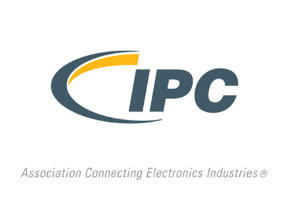For more than 60 years, the Institute of Printed Circuits (IPC), a trade association, has standardized the assembly and production of electronic equipment worldwide. IPC training and certification are essential for any soldering professional who wishes to work with electronics manufacturing companies since IPC’s annual standards are recognized worldwide.
We must first comprehend the fundamental standardization to appreciate the significance of acquiring IPC-Certification training or going to the IPC recertification training center to renew certification because of its immense significance.
IPC guidelines are intended to:
- Develop feedback mechanisms for ongoing performance enhancement by soldering experts, project managers, training managers, etc.
- Pay attention to how the final product performs.
- Simplify the complex terminology that professionals who solder must use.
- Ensuring that all soldering experts adhere to the same standards at their workplaces may reduce the time it takes for products to reach the market.
- Maintain a close connection between soldering Design for the Environment (DE) and Design for Manufacturability (DFM) (DFE).
- Professionals in the field of soldering must stay current on particular production and environmental issues.
These serve as the guiding principles for IPC’s standardization initiatives, primarily created to serve the interests of consumers. These standards seek to remove uncertainty among manufacturers, soldering experts, and regular consumers by facilitating interchangeability and creating higher-quality products.
Why Obtain IPC Accreditation?
- Soldering specialists can ensure that they follow all pertinent guidelines and laws for electronic manufacturing by obtaining IPC accreditation and solder training.
- Most organizations now request IPC certification information from soldering specialists when recruiting them.
- The reason why an IPC-accredited soldering professional is so highly regarded in the field is because of the certification:
- Designs made by soldering experts adhere to IPC and industry requirements.
- Given that they officially endorse the world’s leading trade association for soldering experts, the skill level and knowledge are appropriate for employment.
- The greatest electronic manufacturing organizations can hire a soldering expert due to their superior experience and understanding of widely used procedures.
- The soldering expert can choose wisely if there are any inconsistencies or questions regarding what the manufacturing company is requesting and what IPC standards are expected of them.
- The expert in soldering is knowledgeable about cutting-edge technology and specialized procedures employed in the field.
- The needs for soldering in the manufacturing sector fluctuate, particularly for specialized procedures.
- The experts who hold this accreditation promise to carry out their jobs by established protocols.
- A competent solderer can recognize the manufacturer’s indicated flaws or nonconformances.
- The soldering expert can then take steps to mitigate these hazards and nonconformances without impairing the goods’ usability, design life, or dependability.
For whom is this Certification Intended?
The soldering of PCB design specialists already employed or planning to enter employment are the target audience for the IPC training courses. The recognition that these certificates offer might be quite beneficial to these individuals. After passing this training course, international standards consider their abilities and designs acceptable.
Anyone with extensive soldering and PCB design knowledge is eligible to apply for these certification programs. Professionals performing larger operational tasks, including equipment development, electronics design, quality control specialists, etc., can also use this certificate.
These training courses give soldering experts the abilities they need to produce higher-quality work.
Once applicants have this certification, they no longer need to redo their work or undergo an examination. Their general understanding of and proficiency with complicated design scenarios increases significantly. Thanks to this accreditation, professionals in the welding industry can better market themselves to potential customers or employers.
IPC certification is only good for two years before needing to be renewed. Before January 1st, 2020, the IPC Certification Office would only allow one request for a 90-day extension of the certification’s two-year duration.
Since then, the renewal procedure has altered and no longer permits approvals of a 90-day extension. Beginning on January 1st, 2020, certification renewals must occur no later than six months before the current certification expires. When certifications are renewed, they will continue to be valid from the prior certification’s expiration date for an additional two years.
How to Recertify?
Depending on the credential and IPC certification level, there are numerous options for someone to recertify:
The renewal challenge test for IPC certification: Candidates with extensive experience with standards or who regularly practice the skills as part of their regular job routine use this choice.
In this instance, the student interacts with the instructor or the training facility to schedule a recertification exam appointment. There is only exam proctoring; there is no instruction.
For the discrimination standards (A-600, A-610, A-620, and 6012), the assessment may take the form of a standards comprehension test, or it may take the form of a skills-based comprehension test (J-STD-001, IPC 7711/21). This IPC certification renewal process can be completed on-site, online, or at a training facility.
Take a class for IPC recertification: This option is ideal for people who don’t often use the standard daily or if there have been significant changes due to a modification. A thorough review of all the necessary information in an IPC certification renewal course. Testing again confirms skill levels and knowledge of applying the standard after the course.
An authorized IPC Training organization handles CIT level recertification.







